Philadelphia Insurance Claim Help: Protecting Your Home or Business After a Loss
.svg)
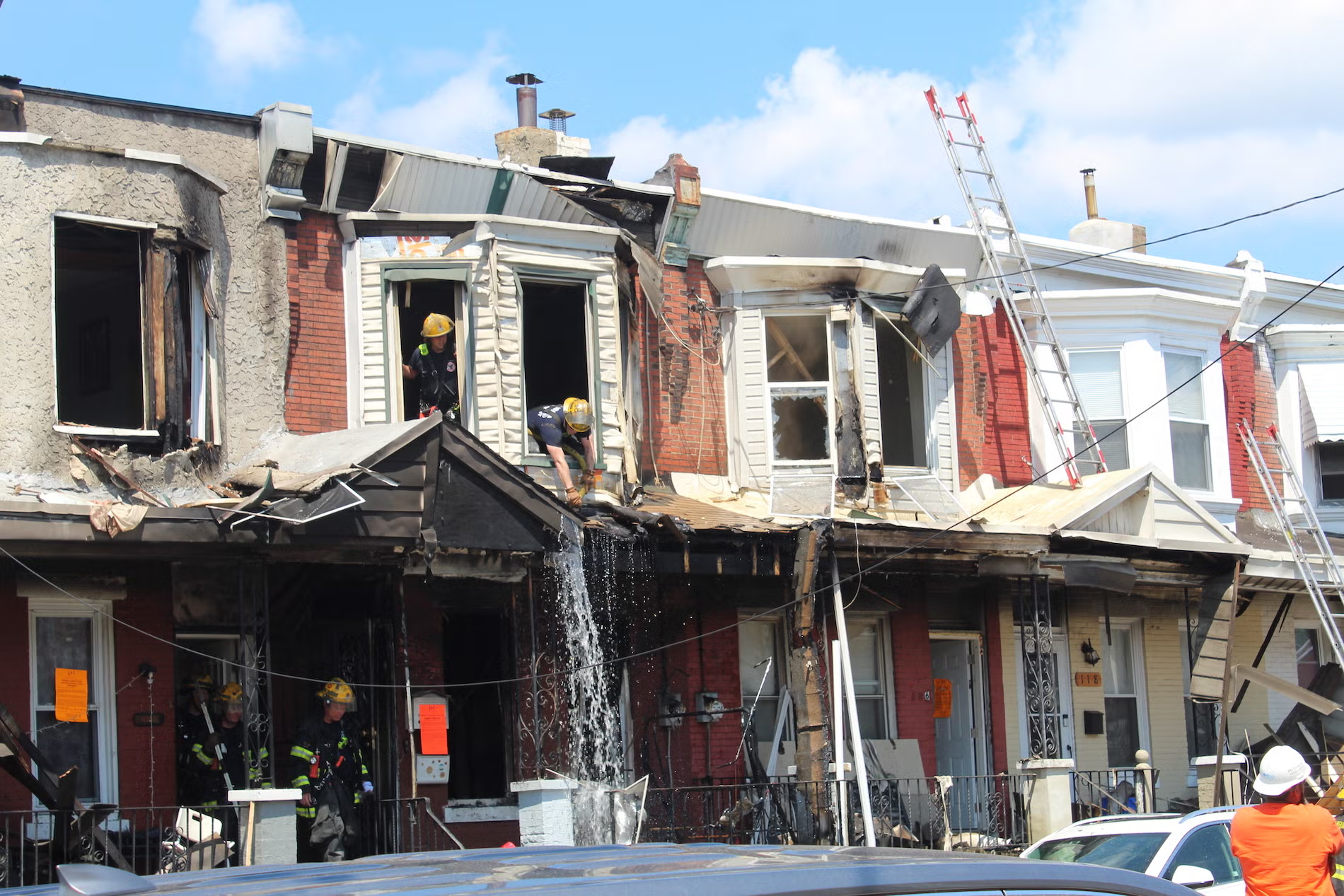
Why Philadelphia Insurance Claim Help Matters More Than Most People Expect
Owning property in Philadelphia means dealing with a unique mix of history and hard reality. Rowhouses packed tightly together, century-old brick facades, plaster walls, flat roofs, converted warehouses, high-rise condos, and small storefronts all share one thing in common: when something goes wrong, it tends to get complicated fast. A burst pipe on the top floor of a South Philly rowhome can ruin ceilings and hardwood floors all the way down to the basement. A kitchen fire in a mixed-use building in Fishtown can send smoke and soot into apartments and commercial spaces you never imagined were connected. A wind-driven storm can find every weakness in an aging flat roof in West Philly and start a chain of leaks that don’t show up until the next rain.
In those moments, your first thought is not the insurance policy; it is safety and survival. You worry about your family, your tenants, your employees, your customers. Only after the dust settles do you sit down with the policy you have been paying for and assume it will do what it promised: cover the loss. That is when many Philadelphians discover that a serious insurance claim is not a simple matter of “file and get paid.” It is a controlled process built and managed by the insurance company, governed by dense policy language, strict conditions, and internal guidelines you never see. That is exactly why Philadelphia insurance claim help matters.
The adjuster who visits your damaged property may seem sympathetic, but they are not your representative. They work for the carrier. Their job is to evaluate your loss and recommend payment in a way that fits the company’s claim philosophy and cost goals. That often means short inspections, conservative repair scopes, and heavy reliance on estimating software that may not reflect what it actually costs to fix a rowhouse kitchen or a commercial storefront in Philadelphia’s current construction market. Without independent Philadelphia insurance claim help, most property owners simply assume that what they are told is what the policy really allows.
Philadelphia’s building stock makes this even more dangerous. Older properties have layers of past renovations, hidden structural issues, aging plumbing and wiring, and flat roofing systems that were patched again and again over the years. Damage rarely stops at a single room. Water finds pathways behind plaster and brick. Smoke seeps into shared walls and chase spaces. Settling cracks can mask or mimic new structural movement. A quick visual inspection seldom tells the whole story. Effective Philadelphia insurance claim help means having someone who understands how these buildings are actually put together and where damage tends to hide.
The policy itself is another hurdle. The declarations page shows limits that look reassuring, but the real rules are in the fine print: endorsements, exclusions, special conditions, and definitions that decide what is covered and what is not. Terms such as “sudden and accidental,” “repeated seepage,” “back-up of sewers or drains,” “collapse,” and “ordinance or law” have specific meanings that may be very different from what you assume. Whether your roof or interior finishes are paid at replacement cost or actual cash value can change a check by tens of thousands of dollars. Philadelphia insurance claim help means having someone read those provisions from your side of the table, not relying on the carrier’s narrow interpretation.
Add in the stress of displacement, upset tenants, employees without a workplace, or customers you are trying to keep, and it is easy to see why so many people just want the claim over with. That is when low or incomplete settlements are most often accepted. Professional Philadelphia insurance claim help exists to interrupt that pattern. Instead of acting out of fatigue and confusion, you move through the process with a plan, with someone who understands both the realities of Philly buildings and the realities of the insurance system guiding you toward a fairer result.
How the Philadelphia Insurance Claim Process Really Works
From the outside, it looks simple: you call the insurance company, they inspect, they pay. But a real Philadelphia property claim has far more moving parts. Understanding how the process actually works—and where it often goes wrong—is the foundation of effective Philadelphia insurance claim help.
Every claim begins with notice of loss. That first phone call or online report is not just a courtesy; it becomes part of the permanent claim file. How you describe the problem—when it started, what you saw, what you did—can influence how the carrier categorizes the loss. If you sound uncertain about dates or suggest that a leak “has been going on for a while,” your own words can later be used to argue that the damage was gradual, not “sudden and accidental,” and therefore limited or excluded. Philadelphia insurance claim help can begin even here, by guiding you to stick to clear, factual descriptions instead of guesses that can be twisted against you.
Once the claim is opened, the insurer assigns an adjuster. In busy seasons—after a big storm, a deep freeze, or a string of fires—those adjusters can be handling dozens of files at once. Inspections may be brief. In a water loss, the adjuster may focus on visible staining and warped flooring, skipping moisture checks inside walls or under tile. In a fire, they might spend most of their time in the room of origin and only glance at distant rooms that still smell of smoke. On a storm claim, they might look at a portion of the roof from the ladder and not trace interior leaks back to specific roofing failures. This is one of the reasons Philadelphia insurance claim help is so important: you need an assessment driven by what is actually damaged, not by how much time the company has allocated for your visit.
After the inspection, the adjuster enters their findings into estimating software. These programs are standard in the industry, but they are only as accurate as the inputs and assumptions. Line items, quantities, and unit prices can all be set conservatively. Certain tasks may be omitted entirely, especially those involving hidden areas or building code compliance. A rowhouse with plaster walls and ornate trim might be priced as though it had simple drywall and stock baseboard. A commercial space with custom built-ins and lighting may be estimated as if it were bare-bones office space. For most policyholders, that printout becomes the “official” measure of their loss. With Philadelphia insurance claim help, it becomes a first draft to be tested, challenged, and improved.
Often, the insurer will issue an initial payment based on this estimate. If you have replacement cost coverage, they may withhold some of the funds as depreciation to be “recovered” later when repairs are complete. Many people assume that taking this payment means they are locked into the numbers, but that is rarely true. You usually have the right to submit additional documentation, contractor bids, and supplemental estimates showing that the original scope was incomplete. Philadelphia insurance claim help is about building those supplements properly—line by line, with clear justification—so that the carrier has a hard time ignoring or rejecting them without serious consideration.
Throughout the claim, there are deadlines, conditions, and requests for information. The insurer may ask for receipts, prior repair records, photos, a sworn proof of loss, or even an examination under oath. Missing these deadlines or responding with incomplete information can give the carrier leverage to delay or limit payment. Meanwhile, you are also dealing with temporary housing, contractors, and day-to-day life or business. Philadelphia insurance claim help includes keeping track of these requirements, making sure responses are timely and strategic instead of rushed and incomplete.
Disputes often arise around cause and extent of damage. The company may argue that a roof leak is due to age, not the storm you reported. They might claim that cracking plaster was there before the water intrusion or that soot in distant rooms is not significant enough to justify real cleaning or replacement. Without strong documentation and a clear understanding of how Philly buildings respond to water, fire, and structural movement, it is hard for a policyholder to push back effectively. Philadelphia insurance claim help uses building knowledge, photos, moisture readings, expert opinions, and policy language to rebut those arguments instead of simply accepting them.
If negotiation stalls and the insurer’s offer remains far below what it truly costs to restore your property, your policy may allow for appraisal or other forms of dispute resolution. In some cases, legal action becomes part of the conversation. While claim help professionals are not lawyers, their work—careful inspections, detailed estimates, organized evidence, and documented communications—creates a strong foundation for any further steps you and your attorney decide to take.
In short, the Philadelphia insurance claim process is not just an administrative formality. It is a structured negotiation that begins the moment you pick up the phone. Philadelphia insurance claim help ensures that you are not walking into that negotiation alone and unprepared.
Common Philadelphia Losses and How Claim Help Changes the Outcome
The types of property damage that occur in Philadelphia are shaped by the city’s age, density, and climate. Understanding these patterns makes clear why local, focused Philadelphia insurance claim help is often the difference between a patchwork repair and a proper restoration.
Water damage is one of the most frequent and misunderstood claim types. In stacked rowhouses and multifamily buildings, plumbing often runs through shared walls and vertical chases. A single broken supply line on the third floor can send water through ceilings, down interior walls, into electrical boxes, behind kitchen cabinets, and all the way into the basement. By the time you see a stain, the path of moisture may already be long and complicated. Many company adjusters will approve partial drywall replacement and surface repairs, leaving saturated insulation, framing, and subflooring in place. Over time, that decision can lead to ongoing problems and future claims. Philadelphia insurance claim help means treating water damage as a three-dimensional problem—tracking where water migrated, insisting on proper demolition and drying, and making sure the claim reflects the full cost of doing that work.
Sewer and drain backups are another major issue. Older sections of the city have aging sewer lines, and heavy rain can overwhelm systems. When dirty water comes up through floor drains, toilets, or tubs, the damage is not just “wet”; it is contaminated. Policies usually handle this differently from clean water leaks, often requiring special water backup endorsements and imposing lower sub-limits. Insurers may be quick to categorize events in ways that minimize their payment obligation. Philadelphia insurance claim help involves analyzing the exact cause, comparing it to the policy language, and pressing for the broadest reasonable use of available coverage, especially when basements, mechanicals, and stored contents have been affected.
Fire and smoke claims can be particularly complex in Philadelphia’s attached housing and mixed-use structures. A kitchen fire in one unit can send smoke through shared walls, stairwells, and ductwork into neighboring units. In older buildings with balloon framing or unsealed penetrations, smoke and soot can move surprisingly far. Insurance company estimates may focus on the obvious burned area, plus a bit of cleaning nearby. But residents still smell smoke weeks later, clothing and soft goods carry odors, and fine soot remains in hidden spaces. Philadelphia insurance claim help often involves working with reputable restoration firms to test surfaces, document contamination, and justify the level of demolition, cleaning, sealing, and replacement really needed to deliver a safe, healthy environment.
Storm and wind damage is another recurring challenge. Flat and low-slope roofs, especially on older rowhouses and commercial buildings, are vulnerable to uplift, seam failure, and flashing problems during strong winds. Heavy rain that follows can exploit these weak points and lead to complex leak patterns. Insurers may call this “wear and tear” or “long-standing issues,” even when storm data and the timing of leaks tell a different story. Philadelphia insurance claim help focuses on tying specific damage to specific events, using weather records, damage patterns, and rooftop inspections to push back on overly broad wear-and-tear arguments.
Commercial and rental property claims blend physical damage with financial loss. A restaurant, salon, or retail shop forced to close for repairs can lose substantial income while still facing rent, utilities, payroll, and other fixed expenses. Landlords can lose rent when units are uninhabitable. Policies may provide coverage for lost income, additional living expenses, or extra expenses incurred to keep operations going, but insurers often challenge how long those losses really lasted or whether certain costs are truly necessary. Philadelphia insurance claim help for businesses and landlords includes gathering financial records, identifying realistic baseline performance, and clearly connecting dips in revenue and added expenses to the damage and repair period, so those parts of the claim are taken seriously.
High-character, historic, and simply older properties are especially vulnerable to underestimation. Original hardwood floors, plaster walls, detailed wood trim, ornate facades, and custom metalwork are common across many Philly neighborhoods. Standard estimates that use generic drywall, basic trim, and laminate or builder-grade flooring simply do not reflect the cost of restoring these features with like kind and quality materials. Philadelphia insurance claim help means documenting these existing conditions up front and insisting that repair plans and pricing respect the property’s true character and the promises built into replacement-cost policies.
Across all these scenarios, the pattern is straightforward: Philadelphia insurance claim help turns a narrow, surface-level view of damage into a fuller, evidence-based picture of what it will really take to make things right.
How to Strengthen Your Philadelphia Insurance Claim and Make the Most of Help
Even with strong Philadelphia insurance claim help, your own actions play a big role in how your claim turns out. The steps you take in the first hours and days after a loss—and the choices you make as the claim unfolds—can either support or undermine the work your advocate is doing.
The first priority is always safety and mitigation. If water is pouring from a pipe, shut off the supply if you can safely reach it. If the roof is open, arrange for emergency tarping. If windows are broken or doors are compromised, secure the property. Most policies require you to take reasonable steps to prevent additional damage, and failing to do so can become an excuse for the carrier to withhold payment for part of the loss. At the same time, keep records of who you hire, what they do, and what they charge. Those invoices and reports are part of the claim and can be recoverable when coverage permits.
Next, document the damage before too much changes. Take clear photos and videos of each affected area: wide shots showing entire rooms and hallways, plus close-ups of damaged surfaces, contents, and building components. In basements, capture water lines on walls, affected mechanicals, and damaged storage. On upper floors, document ceilings, floors, built-ins, and any place you see staining, buckling, or cracking. For fires, photograph both the burned areas and apparently untouched spaces where soot is visible or odors are strong. These images provide a baseline that Philadelphia insurance claim help can refer back to long after demolition begins and the physical evidence is gone.
When you bring in a professional to help with the claim, be transparent. Share your policy, correspondence from the insurer, mitigation invoices, contractor bids, your photos and videos, and your own notes. Do not hold back out of fear that something will “hurt the claim.” Surprises discovered by the insurance company later are far more damaging than known complications addressed early. Effective Philadelphia insurance claim help depends on a complete picture of the situation.
As the claim progresses, stay engaged. You do not need to manage every technical detail—that is what you have help for—but review major documents when they are presented to you, ask questions when you do not understand something, and give honest feedback about how the damage is affecting your daily life or business operations. If a temporary apartment is unsuitable, if customers have stopped coming, if repairs are taking longer than expected, that information can support additional living expense or business interruption aspects of your claim.
You can also make your Philadelphia insurance claim stronger by choosing your contractors wisely. Do not feel obligated to use a contractor “recommended” by the insurer if you are not comfortable with them. Obtain estimates from reputable local companies, ideally those familiar with work in Philly’s older housing and commercial stock. Compare their scopes and pricing to what the insurer is offering. When differences are significant, your claim helper can use those independent estimates as leverage in negotiations.
A short, simple checklist to keep in mind during your Philadelphia insurance claim might include:
- Protect safety first, then prevent further damage and save all invoices.
- Photograph and video everything before major cleanup or demolition.
- Share all documents and information with your claim advocate early.
- Ask questions before signing any “full and final” settlement agreements.
Finally, understand and be comfortable with how your Philadelphia insurance claim help is compensated. Most representation-based professionals, such as public adjusters, are paid on a contingency fee—a percentage of the settlement they help secure. Make sure that fee, what it applies to, and how it interacts with any payments already made by the insurer are clearly spelled out in writing. You should feel that your interests and your helper’s interests are aligned, both aiming at a fair, complete recovery.
When you combine careful early actions, honest communication, and the right professional support, your Philadelphia insurance claim stops being an overwhelming burden and becomes a manageable, structured process.
Conclusion
Serious property damage in Philadelphia—whether from a burst pipe in a narrow rowhome, a basement sewer backup, a fire in a mixed-use building, or a storm that exposes an old flat roof—does more than wreck structures and belongings. It throws your life, your tenants, or your business into turmoil. The insurance policy you have been faithfully paying for is supposed to help you recover, but the claims system you step into is complex, technical, and stacked in favor of the carrier that designed it. Philadelphia insurance claim help exists to rebalance that system. By pairing deep knowledge of how Philly buildings are built and damaged with careful policy interpretation, thorough documentation, realistic estimating, and disciplined negotiation, expert Philadelphia insurance claim help turns a confusing, one-sided process into a focused effort aimed at truly restoring your property and protecting your financial future. Instead of accepting whatever number the company adjuster puts on the table, you move forward with a clear understanding of what your loss really involves—and with a dedicated advocate working to secure the settlement you genuinely need to rebuild and move on.



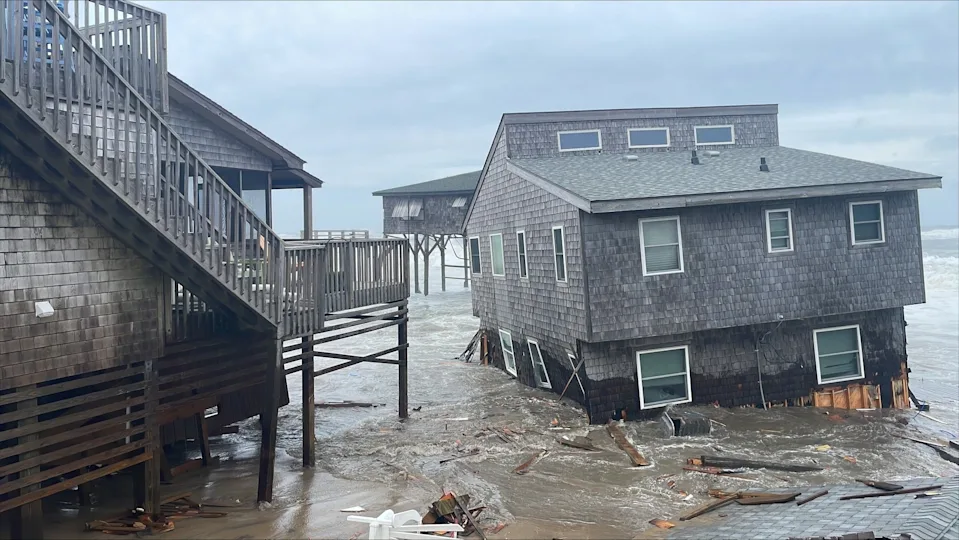
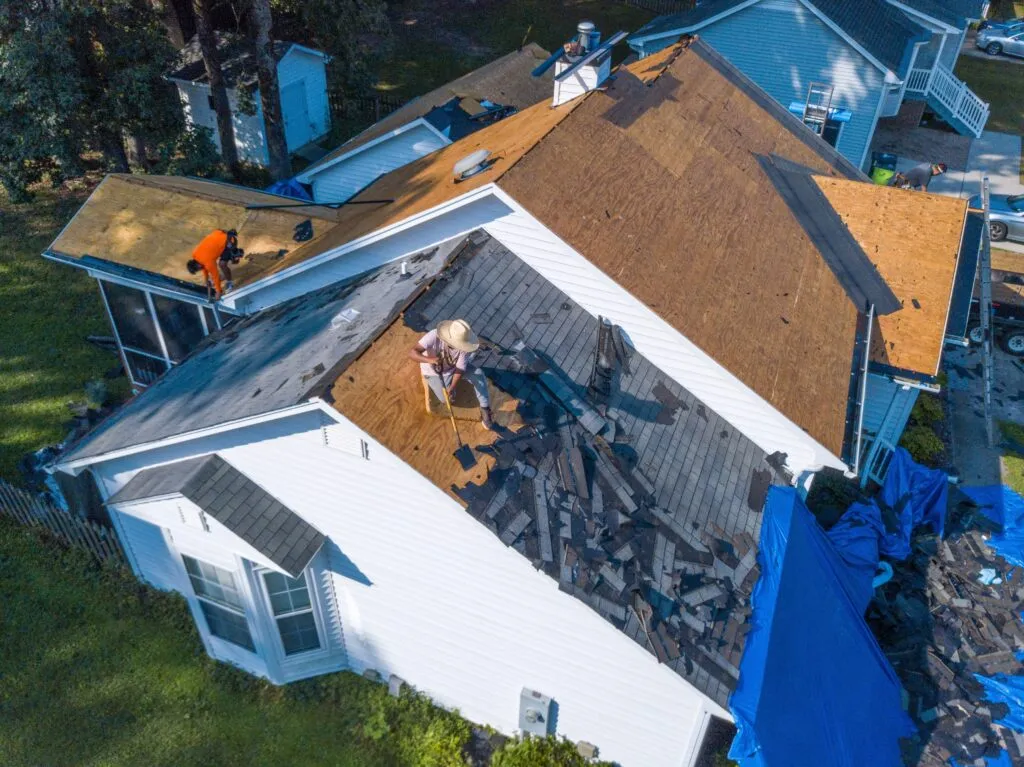

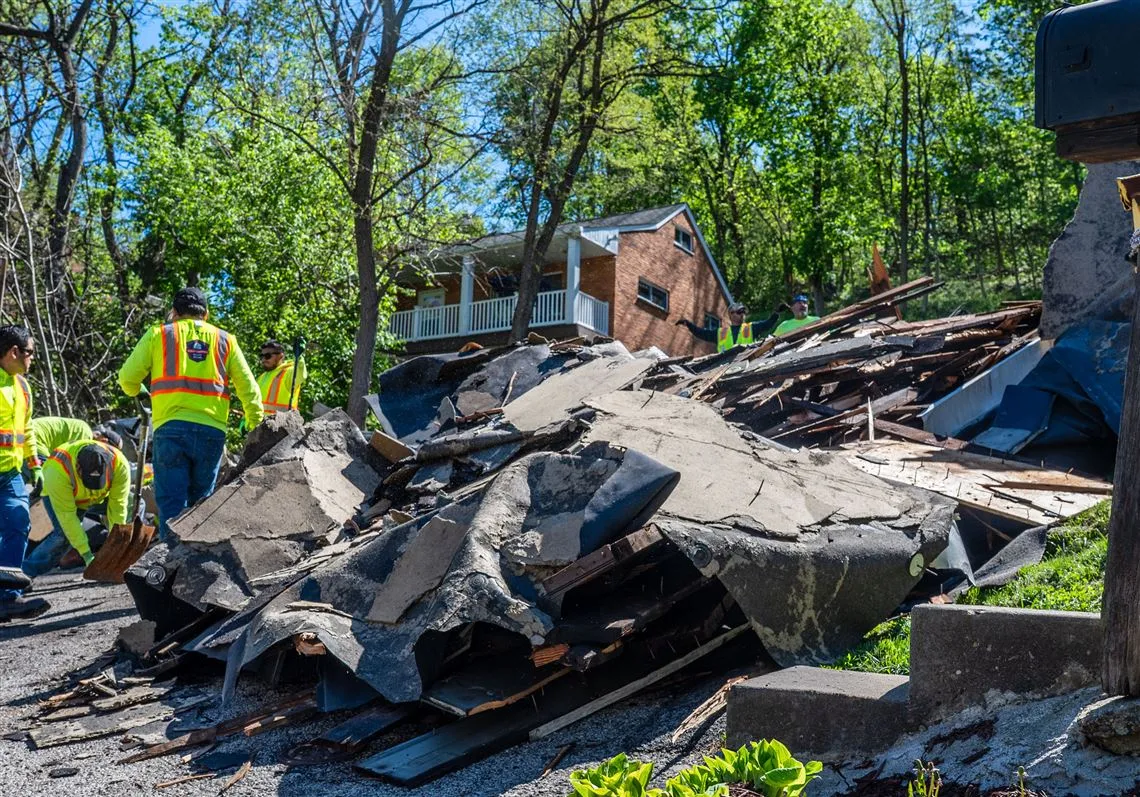
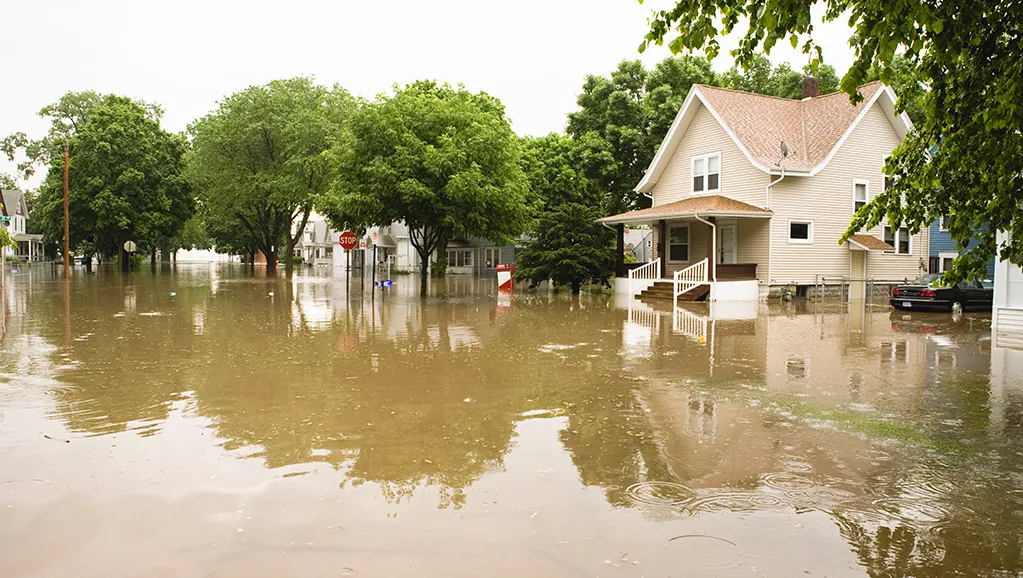

.svg)